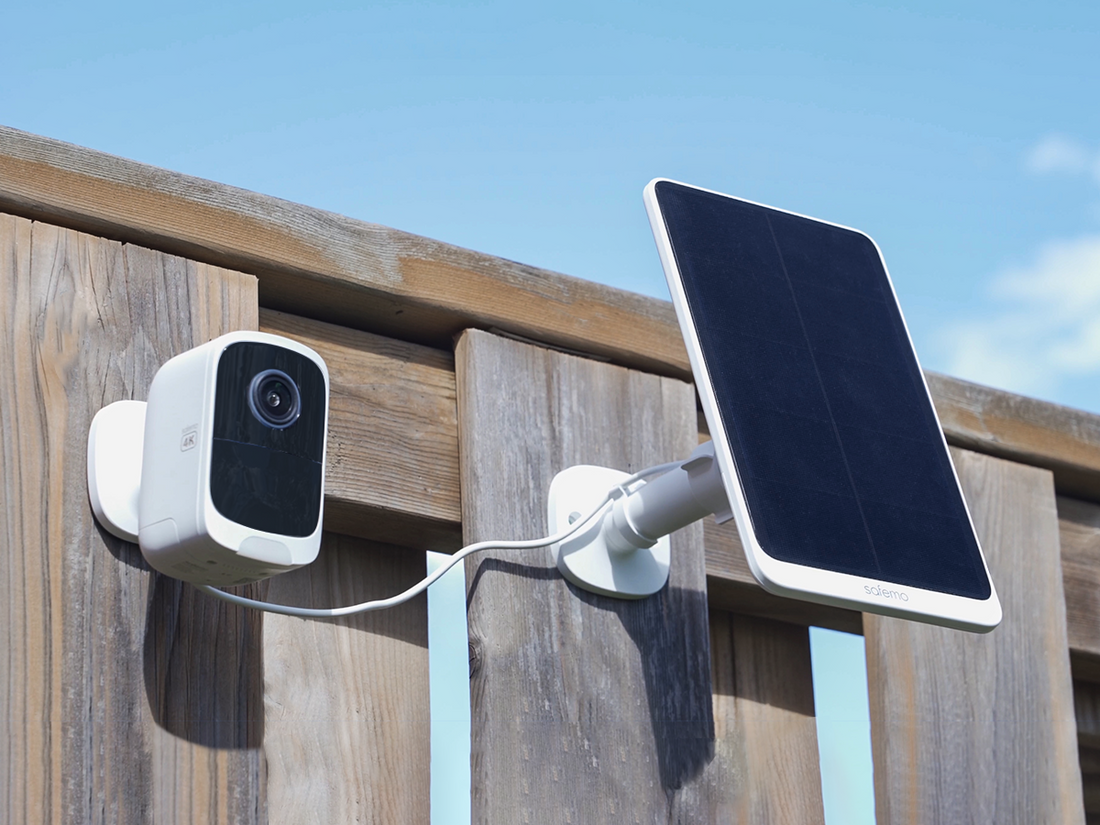Security Cameras and Direct Sunlight: What You Need to Know

As a homeowner concerned about security, you've likely considered installing outdoor cameras to keep an eye on your property.
But have you thought about how environmental factors, particularly direct sunlight, might affect your security camera's performance?
In this article, we'll explore the impact of sunlight on security cameras, addressing common concerns and providing practical solutions to ensure your home security system functions optimally in all conditions.
The Impact of Direct Sunlight on Security Cameras
Can Bright Light Damage a Security Camera?
You might wonder if exposing your security camera to intense sunlight could potentially harm it. The truth is, while modern security cameras are designed to withstand various environmental conditions, prolonged exposure to direct sunlight can indeed cause issues:
- Overheating: Direct sunlight can cause the internal components of your camera to heat up significantly.
- Image Quality Degradation: Bright light can lead to overexposed or washed-out footage, reducing the camera's effectiveness.
- Sensor Damage: In extreme cases, prolonged exposure to intense sunlight may damage the camera's sensitive image sensor.
Is It Normal for Security Cameras to Get Hot?
As you monitor your home security system, you might notice that your outdoor cameras feel warm to the touch. This observation leads to an important question: is it normal for security cameras to get hot?
The short answer is yes, it's normal for security cameras to generate some heat during operation. However, excessive heat can be problematic:
- Normal Heat Generation: Security cameras contain electronic components that naturally produce heat during operation.
- Sunlight Exposure: Direct sunlight can significantly increase the temperature of your camera, especially dark-colored models that absorb more heat.
- Continuous Operation: Cameras that run 24/7 tend to generate more heat than those that operate intermittently.
While some warmth is expected, your camera shouldn't be too hot to touch comfortably. If you notice excessive heat, it might indicate a problem that needs addressing.
What is the Temperature Rating for Security Cameras?
To ensure your security camera can withstand various weather conditions, including direct sunlight, it's crucial to understand its temperature rating. Most outdoor security cameras are designed to operate within a specific temperature range:
- Typical Range: Many outdoor security cameras are rated to function between -4°F to 122°F (-20°C to 50°C).
- Extended Range: High-end models might offer an even wider operating temperature range, sometimes from -40°F to 140°F (-40°C to 60°C).
It's essential to check the specifications of your specific camera model and ensure it's suitable for your local climate. Remember, these ratings account for ambient air temperature, not the additional heat generated by direct sunlight exposure.
7 Ways to Protect Your Security Camera from Sunlight Damage
Now that you understand the potential impacts of direct sunlight on your security cameras, let's explore some practical solutions to protect your investment and ensure optimal performance:
- Strategic Placement: Position your cameras to avoid direct sunlight, especially during the hottest parts of the day. Consider the sun's path throughout the year when choosing locations.
- Use Protective Housing: Install your camera within a protective housing or dome that provides shade and additional cooling.
- Opt for Light-Colored Cameras: Choose cameras with light-colored exteriors, as they reflect more sunlight and heat compared to dark-colored models.
- Install Sunshields: Many camera models offer compatible sunshields that can be attached to provide extra protection from direct sunlight.
- Ensure Proper Ventilation: If possible, mount your camera in a well-ventilated area to help dissipate heat more effectively.
- Regular Maintenance: Periodically check your cameras for signs of heat damage or performance issues, especially during hot summer months.
- Consider IR Cut Filter Cameras: These cameras automatically adjust to changing light conditions, helping to maintain image quality in bright sunlight.
While these measures help protect your cameras from sunlight damage, you might also consider turning this challenge into an opportunity.
In areas with ample sunlight, solar-powered security cameras can be an excellent solution, harnessing the sun's energy to power your surveillance system. To learn more about this eco-friendly option, check out our guide on how solar-powered security cameras work.
Of course, sunlight isn't the only weather condition that can affect your security cameras. If you live in an area with diverse weather patterns, you might also be interested in learning about how cold weather affects security cameras and how to protect them during winter. By preparing for various weather conditions, you can ensure your home remains secure year-round.
Conclusion
Understanding how direct sunlight affects your security cameras is crucial for maintaining an effective home security system. By being aware of potential issues like overheating and image quality degradation, and implementing protective measures, you can ensure your cameras continue to serve their purpose effectively, regardless of sunlight exposure.
As technology continues to advance, newer models of security cameras are being developed with improved heat resistance and adaptive features to combat the challenges posed by direct sunlight.
To explore cutting-edge solutions that address these concerns, consider checking out Safemo's AI-Smart Home Security System. Our innovative Set P1 is designed to provide reliable security while adapting to various environmental conditions, including bright sunlight.
Remember, a well-planned and properly maintained security camera system is key to keeping your home safe and secure. By taking the time to understand and address the impact of sunlight on your cameras, you're ensuring that your security system remains effective year-round, giving you peace of mind no matter the weather.